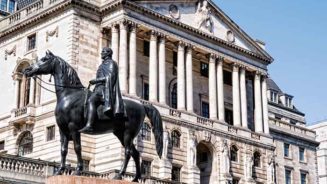The Department for Work and Pensions (DWP) announced it plans to speed up the introduction of the cold-calling ban in its response to a Work and Pensions Committee report on pension freedoms.
DWP response
In its response, the DWP said there should be an outright ban on pension cold calling.
“The government agrees with the committee about the need to address the threat posed by pension scams by cutting off scamming activity at the source to disrupt criminals and protect savers.”
Currently, the government plans to introduce a ban on pensions cold-calling through the Financial Guidance and Claims Bill, however these changes would not come into place until 2020.
The DWP said that it plans to speed up the introduction of a ban by putting forward its own amendment to the Financial Guidance and Claims Bill, which will soon be passed into law, and then produce regulation to introduce the ban.
Light on detail
Jane Goodland, responsible business director at Old Mutual Wealth, said the response is light on detail when it comes to the next steps DWP will take.
“Now the government [has] heeded calls that something needs to be done sooner and are planning to table the amendment.
“Eyes will be peeled on what the new regulation will entail and the pressure is on for them to get it right,” Goodland said.
Unlikely to deter criminals
Goodland warned, however, that a ban can only go so far and will likely not deter criminals.
“What is also needed is an awareness campaign so that people know if they receive a cold call concerning [their] pension that they should speak to Pension Wise, a financial adviser or their pension provider,” she said.
James Walsh, policy lead for engagement, the EU and regulation at the Pensions and Lifetime Savings Association (PLSA), agreed that while the ban is welcome, it is not a water-tight solution.
“Some scammers will still work to find a way around legislation by – for example – calling from overseas,” Walsh said.
Guidance take-up
In addition to the cold-calling ban, the DWP response also addressed the increase in the take-up of guidance when accessing the pension freedoms.
Take-up guidance continues on page 2.






John Stirling says:
So, these criminals who are hard selling investments which don’t exist will be put off by making it mildly illegal to contact people in the first place will they? I rather doubt it.
I know proportionality is a tricky thing to deliver, but somehow the FCA just has to have a division which is linked with the National Crime Agency, and then take this stuff seriously at source, rock up without notice, with guns, in a very scary way. That might put off some of the more ‘sales led’ white collar crime, and will reduce the incidence because at least they can intervene before too much damage is done. Currently Justice grinds too damn slowly, and these scammers ignore the ‘polite notice’ that the FCA sends suggesting they may be acting outwith authorisation. Treating criminals in the same way you treat authorised entities is not a winning strategy.
If they are not authorised they are criminals – therefore can be treated without the niceties which are appropriate for dealing with legitimate businesses.
Take a leaf out of the playbook used by the Customs and Excise enforcement arm of HMRC, or better still the anti-terror bits of the Metropolitan Police.